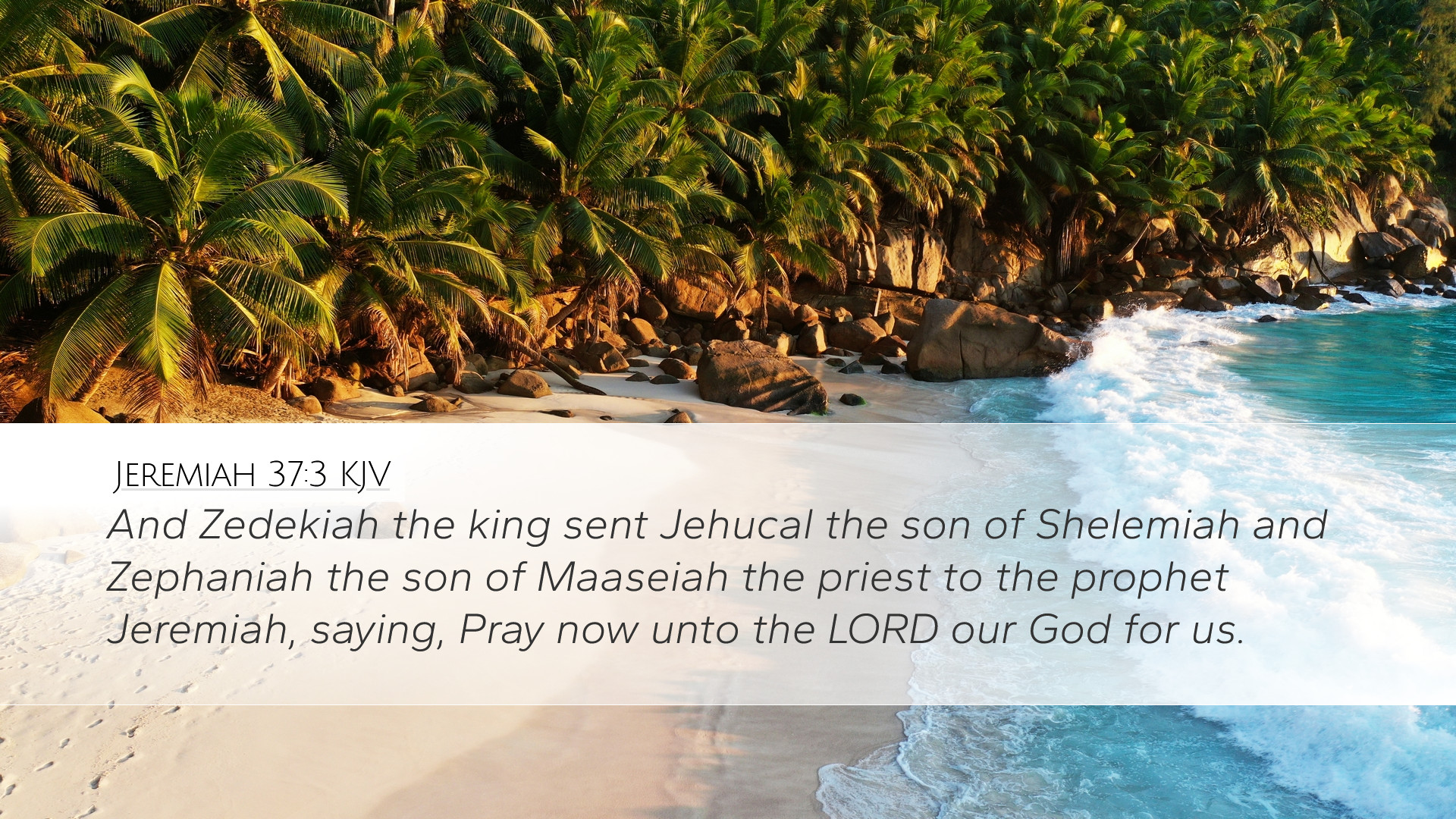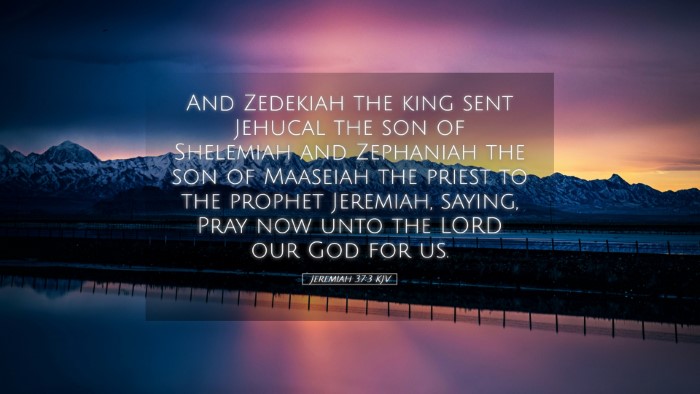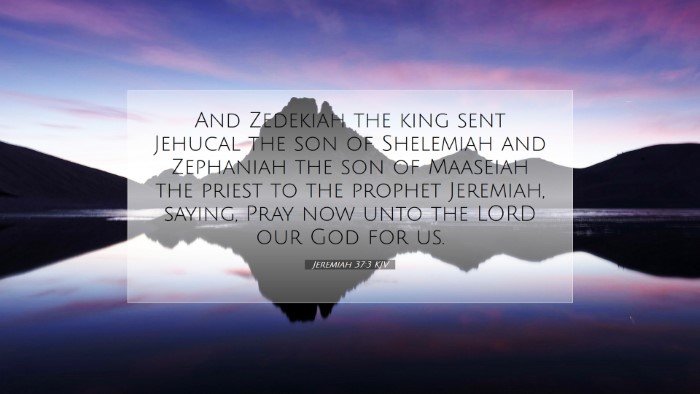Commentary on Jeremiah 37:3
Verse: "And Zedekiah the king sent Jehucal the son of Shelemiah and Zephaniah the son of Maaseiah the priest to the prophet Jeremiah, saying, Pray now unto the Lord our God for us."
Introduction
This verse encapsulates a moment of desperation in the history of Judah, capturing the essence of political turmoil and spiritual inquiry. King Zedekiah, faced with the impending doom from Babylon, seeks the intercession of the prophet Jeremiah. This commentary draws upon the insights of esteemed theologians like Matthew Henry, Albert Barnes, and Adam Clarke to explore the theological implications, historical context, and practical applications of this passage.
Historical Context
The backdrop of Jeremiah 37:3 is critical to understanding its depth. At this time, Zedekiah was the last king of Judah, ruling during a period characterized by Babylonian siege and internal strife. Historical accounts suggest that Zedekiah was caught between the influences of a powerful enemy and the internal pressures of a wavering populace.
Zedekiah's Leadership
Matthew Henry notes that Zedekiah's leadership was marked by indecision and fear. Despite being a king, Zedekiah was largely ineffective in protecting his kingdom from the existential threat posed by Babylon. His request for prayer from Jeremiah indicates his recognition of the limitations of political power in the face of divine sovereignty.
The Role of the Prophet
Jeremiah's position as a prophet is essential. His prophetic ministry, characterized by messages of judgment and calls to repentance, often put him at odds with the political leaders of his time. Adam Clarke emphasizes that Jeremiah is not merely a messenger but an intercessor, able to communicate the will of God to the people and their leaders.
Intercessory Prayer
In his commentary, Albert Barnes articulates the significance of prayer in this context. The act of sending emissaries to Jeremiah reveals Zedekiah’s acknowledgment of the need for divine intervention. It reflects a turning point where a king, known for his pride, humbles himself by seeking the counsel of a prophet.
Theological Implications
This verse invites deep theological reflection on several levels:
- The Sovereignty of God: The plight of Zedekiah underscores the ultimate authority of God over nations. Despite Zedekiah's position, he is portrayed as an anxious ruler, revealing the futility of human efforts without divine support.
- The Importance of Repentance: The request for prayer highlights the biblical principle that prayer must be accompanied by genuine repentance. God's willingness to intervene often hinges on the posture of the heart (Henry).
- The Necessity of Prophetic Voices: Jeremiah epitomizes the necessity of speaking truth to power. His steadfastness in delivering God’s messages underlines the vital role of prophets in a society straying from divine edicts (Clarke).
Practical Applications for Today
For pastors, students, theologians, and Bible scholars, Jeremiah 37:3 offers several key applications:
- Seeking God in Crisis: Just as Zedekiah turned to Jeremiah in a time of crisis, modern leaders and individuals are called to seek God's counsel during tumultuous times. This highlights the importance of prayer, especially from those in positions of influence.
- The Role of the Church: This scripture emphasizes the church's role as a prophetic voice in society. In an age where moral and spiritual truths are tested, the church must courageously proclaim the message of repentance and hope.
- The Power of Intercession: The act of intercession signifies the weight of collective prayer in shaping the spiritual climate of a nation. Leaders should encourage prayer not just for themselves but for their communities, reflecting a deep reliance on God’s providence.
- Embracing Humility: Zedekiah’s request for prayer serves as a reminder for leaders to exhibit humility. It teaches that recognizing our vulnerabilities and seeking divine guidance demonstrates true strength.
Conclusion
Jeremiah 37:3 serves as a powerful reminder of the interplay between divine authority and human leadership. The request for prayer signifies a moment of clarity in the chaos of political unrest and spiritual neglect. Through the insights of Matthew Henry, Albert Barnes, and Adam Clarke, we glean a profound understanding of the necessity of seeking God through prayer, especially in times of great uncertainty.


